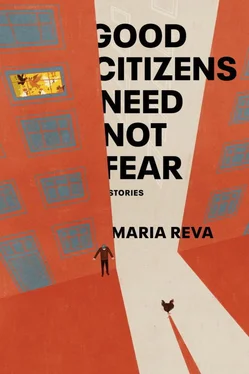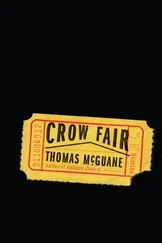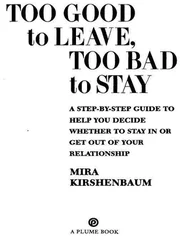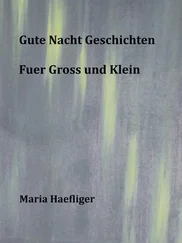Maria Reva - Good Citizens Need Not Fear - Stories
Здесь есть возможность читать онлайн «Maria Reva - Good Citizens Need Not Fear - Stories» весь текст электронной книги совершенно бесплатно (целиком полную версию без сокращений). В некоторых случаях можно слушать аудио, скачать через торрент в формате fb2 и присутствует краткое содержание. Город: New York, Год выпуска: 2020, ISBN: 2020, Издательство: Doubleday, Жанр: Современная проза, humor_satire, на английском языке. Описание произведения, (предисловие) а так же отзывы посетителей доступны на портале библиотеки ЛибКат.
- Название:Good Citizens Need Not Fear: Stories
- Автор:
- Издательство:Doubleday
- Жанр:
- Год:2020
- Город:New York
- ISBN:978-0-38554-529-7
- Рейтинг книги:3 / 5. Голосов: 1
-
Избранное:Добавить в избранное
- Отзывы:
-
Ваша оценка:
- 60
- 1
- 2
- 3
- 4
- 5
Good Citizens Need Not Fear: Stories: краткое содержание, описание и аннотация
Предлагаем к чтению аннотацию, описание, краткое содержание или предисловие (зависит от того, что написал сам автор книги «Good Citizens Need Not Fear: Stories»). Если вы не нашли необходимую информацию о книге — напишите в комментариях, мы постараемся отыскать её.
Good Citizens Need Not Fear: Stories — читать онлайн бесплатно полную книгу (весь текст) целиком
Ниже представлен текст книги, разбитый по страницам. Система сохранения места последней прочитанной страницы, позволяет с удобством читать онлайн бесплатно книгу «Good Citizens Need Not Fear: Stories», без необходимости каждый раз заново искать на чём Вы остановились. Поставьте закладку, и сможете в любой момент перейти на страницу, на которой закончили чтение.
Интервал:
Закладка:
It was a Sunday evening, which was when Konstantyn Illych habitually kept the tomb illuminated with sixty candles for sixty minutes. The weekly vigil coincided with the blackouts, which had started up again for the first time in years, but only in small towns like ours.
From her purse the relic hunter slid a yellowed portrait of a boy posing with a poodle. She positioned it among the other photographs on the display case. Likely she’d bought her prop at a flea market, to help her impersonate a pilgrim. The relationship was almost believable: the relic hunter and the boy in the photo shared pointed, elfish ears.
By the cash register, Konstantyn Illych’s head craned over the crowd. His gaze landed on us. He shook his head at me in sympathy. They can be so chatty, he seemed to say. So whiny.
“That boy is someone’s son,” I whispered to the hunter.
“He was my sister’s.” Her dark eyes met mine, daring me to utter another rebuke. “Do we have a deal?”
For a second I considered; I desperately needed the money, and it would have pleased me to be rid of the mummy. But selling it to a butcher’s block felt like a renewed violence. The duty of a guard is to guard, not to steal, and especially not from Konstantyn Illych. He had given me the job out of goodwill and I could not betray him. I shook my head.
I decided my pain was a test of will. To distract my thoughts from my mouth, and my stomach—I still couldn’t chew solids—I instituted a Changing of the Guard. If we wanted to build a world-class tomb, I told Konstantyn Illych, we needed the pageantry.
Two minutes and forty-five seconds before the hour, every hour, I held the line. I marched out to the front of 1933 Ivansk, high-kicking Prussian style, upper body stiff while my lower body danced away the pressure that had accumulated during the past fifty-seven minutes and fifteen seconds. The old guard charged around the building. Precisely as the clock struck the hour, the new guard marched in from the opposite side. On occasion a child might call out, “But isn’t that the same man as before?” and a snigger would ripple through the crowd. But I paid no heed. My choreography grew more and more elaborate: all taps, skips, and kicks, a wild whir of legs, as though the earth singed my feet.
Konstantyn Illych encouraged my displays; they were drawing larger crowds, which assembled at the top of the hour to cheer on my footwork. By the end of every shift I would exhaust myself, wanting nothing more than the sweet numbness of sleep. After two weeks, however, my hunger gave way to weakness. I lived with a sharp ringing in my skull, the air having condensed into two drills that bore into my ears. My uniform hung from my thinning limbs. I stumbled through the Changing of the Guard, then reduced its frequency, then gave it up. After that, I simply kept to my post, where the pain awaited me hotly, with pincers for arms and clamps for lips.
A knock on the glass wall startled me awake. The streetlamp illuminated the silhouette of a great hairy beast. It watched me for some time before peeling back the fur from its head. I recognized the naked ears that stuck out.
I heaved myself from my cot and waited out a spell of dizziness before shuffling to the door. I unlocked the dead bolt and cracked open the door, its chain still hinged.
The relic hunter’s floor-length coat rippled in the orange lamplight. “Name your price.”
I’d once heard a pensioner lament that to get your teeth fixed you had to give up a kidney. Without expecting an answer, I asked the hunter how much a kidney cost.
Without a blink she said, “Thirty-five thousand.” She peered at my face. “Why, finally getting those teeth done? For thirty-five thousand, you’ll be good as new.” She thrust her hand through the door crack. “Final offer.”
I cringed at the thought of the saint hacked to pieces. But the saint was already dead, as were the men, women, and children who crawled behind my eyes day and night. And here I was, living.
I gripped the relic hunter’s hand. I wanted that hand, warm and moist, to pull me from the tomb, from my wrecked body.
Victims, the newspaper article had called the perished pilgrims. (The railway report itself had not called them anything, only quantified them.) When dredging up the past, the newspapers attempted to divide its players into victims and villains. My employment at the agency would mark me as the latter. But I had suffered, too. I’d grown up without parents. If a coin flip hadn’t decided their fate, likely the tick of a pen had, or an act similarly arbitrary. After three generations, who were the victims, who the villains? We’d become a formidable alloy, bound by shame. The grand dream of equality realized.
I’d braced myself for the stomatological clinic of my childhood: a warehouse with many rows of barbershop chairs, in which a patient endured not only his or her own (unanesthetized) agony, but that of the other wailing patients.
But here, in the reception room of the new private clinic, a burbling fountain induced calm. Glossy posters attested to miraculous Before-and-Afters. Anything could be erased: nicotine and caffeine stains, calculus so thick it could be mined, maxillofacial birth defects, industrial accidents, head-on collisions.
After I laid out the stacks of bills on the counter, a rosy-cheeked stomatologist led me down a corridor. She lifted her chin and thrust back her broad shoulders with the bravado of an opera singer about to step onto the stage. Then she opened a door to a private sunlit room. A mint-green reclining chair greeted me, curved arms inviting, as though it had been waiting for me all along. The instruments of torture were nowhere in sight.
As she inspected my mouth, the stomatologist made small sounds of anguish. “Poor sir,” she murmured, “poor sir.” I lapped up the words; I hadn’t realized how badly I needed them.
“For a case as severe as yours,” the stomatologist pronounced, “only Western technology will do.” She would extract my remaining teeth, which were past their prime anyway, drill holes directly into my jawbone, screw in implants with titanium rods. I recoiled at the idea, but already she had pressed a button, and the chair reclined until my head felt lower than my feet. My face had lost all color, she reported. She worried I would faint.
“The pain,” I asked, “will it go away?”
The stomatologist waved away the question—it seemed beside the point. I would have the best smile in town, she assured me. She hooked a surgical mask over her ears.
It was not until she latched the anesthesia mask over my nose and instructed me to count down from ten that the instruments scurried from their hiding places. With a hydraulic wheeze, a metal tray rose from behind the chair, containing an assortment of pliers. Then came another tray, with two sparkling rows of drill heads. An oval lamp hovered over my face. I felt myself to be on the belly of a spider, each leg performing a task. The final metal dish slid into view, containing the implants. Panic seized me—I recognized their nacreous gleam.
The saint’s teeth grinned at me from the dish, the full set, their roots now titanium.
I tried to warn the stomatologist about the cursed teeth, but my tongue refused to stir, my lips flapped uselessly. The room contracted around the stomatologist’s blue eyes. They crinkled. Under her mask, she must have been smiling. My fear spiked, then burned away. All I could do was accept what was coming, like the clacks of a train pulled into motion. “You aren’t counting, Mikhail Ivanovich. Start counting down.”
ROACH BROOCH
Интервал:
Закладка:
Похожие книги на «Good Citizens Need Not Fear: Stories»
Представляем Вашему вниманию похожие книги на «Good Citizens Need Not Fear: Stories» списком для выбора. Мы отобрали схожую по названию и смыслу литературу в надежде предоставить читателям больше вариантов отыскать новые, интересные, ещё непрочитанные произведения.
Обсуждение, отзывы о книге «Good Citizens Need Not Fear: Stories» и просто собственные мнения читателей. Оставьте ваши комментарии, напишите, что Вы думаете о произведении, его смысле или главных героях. Укажите что конкретно понравилось, а что нет, и почему Вы так считаете.












